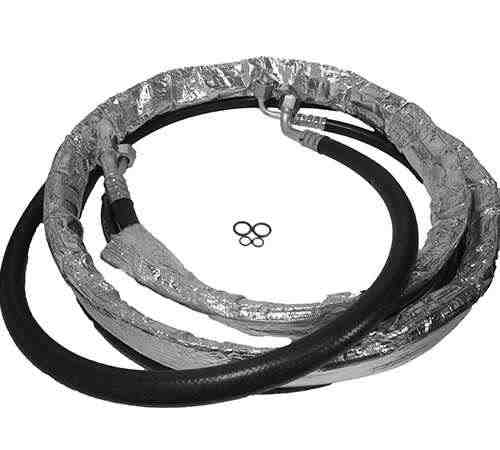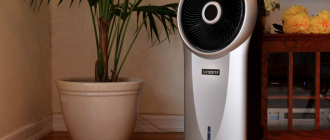
Which country AC is best?
When it comes to finding the best country for air conditioning, there are several factors to consider. One of the most important factors is the climate of the country itself. Countries with hot and humid climates tend to rely heavily on air conditioning to keep their citizens cool and comfortable.
Another important factor to consider is the overall infrastructure and development of the country. Countries with well-developed infrastructure are more likely to have efficient and effective air conditioning systems in place. This can greatly enhance the overall quality of life for residents, especially during the hot summer months.
Furthermore, the cost and availability of air conditioning systems and services is also an important consideration. Some countries may have a higher cost of living, making it more difficult for residents to afford air conditioning. Additionally, the availability of air conditioning systems may vary from country to country, with some countries having a higher demand and therefore more options available.
So, which country is the best for air conditioning? Well, it ultimately depends on individual preferences and needs. However, countries such as Japan, South Korea, and the United States are often regarded as some of the best countries for air conditioning due to their advanced technology, developed infrastructure, and widespread availability of air conditioning systems.
Which Country Has the Best Air Conditioning System?
When it comes to air conditioning systems, different countries offer varying levels of quality and effectiveness. While many countries have advanced technologies and efficient cooling systems, there are a few that stand out as leaders in this field.
One of the countries known for having the best air conditioning systems is Japan. Japanese companies have long been at the forefront of technological advancements in this industry. They have developed innovative cooling systems that are not only energy-efficient but also provide excellent cooling capabilities. This is especially important in a country where summers can be extremely hot and humid.
Another country that is known for its top-notch air conditioning systems is South Korea. South Korean companies have invested heavily in research and development to create cutting-edge cooling technologies. Their air conditioning systems are known for their reliability, quiet operation, and ability to maintain a comfortable indoor temperature even in extreme weather conditions.
In addition to Japan and South Korea, Germany is another country that deserves recognition for its air conditioning systems. German companies have a reputation for producing high-quality and energy-efficient cooling systems. Their systems are known for their durability, precision, and ability to provide consistent cooling performance.
It is worth mentioning that the United States also has a strong presence in the air conditioning industry. American companies have developed advanced cooling technologies and continue to innovate in this field. However, due to the large size and diversity of the country, the quality of air conditioning systems can vary depending on the region.
In conclusion, when it comes to the best air conditioning systems, countries like Japan, South Korea, Germany, and the United States are among the leaders. These countries have invested heavily in research and technology to create efficient, reliable, and high-performance cooling systems. Whether it is the scorching heat of summer or the need for consistent cooling throughout the year, these countries have proven themselves to be the best in providing comfortable indoor environments.
Importance of Air Conditioning
The importance of air conditioning (AC) cannot be overstated, especially in countries with extreme temperatures. AC provides several benefits that enhance the comfort and well-being of individuals, making it a crucial component for both residential and commercial spaces.
One of the primary benefits of AC is its ability to regulate the temperature. It helps in creating a comfortable indoor environment by cooling the air during hot summer months and heating it during cold winters. This ensures that individuals can remain cool and refreshed, leading to increased productivity and overall satisfaction.
In addition to temperature regulation, AC also plays a vital role in improving air quality. It filters out dust, pollen, and other allergens, providing a cleaner and healthier indoor environment. This is particularly beneficial for individuals with respiratory conditions or allergies, as it helps reduce the risk of breathing difficulties and allergic reactions.
Furthermore, AC helps to control humidity levels, which can have a significant impact on comfort. Excessive humidity can make individuals feel sticky and uncomfortable, while low humidity can lead to dry skin and respiratory issues. AC maintains optimal humidity levels, ensuring a pleasant and balanced atmosphere.
AC also contributes to improved sleep quality. A cool and comfortable environment promotes better sleep, allowing individuals to wake up feeling refreshed and energized. Adequate sleep is essential for overall health and well-being, making AC a valuable asset for a good night’s rest.
Lastly, AC can have a positive impact on indoor air circulation. Properly installed AC systems help circulate and distribute cool or heated air evenly throughout a space, preventing stagnant air and creating a more pleasant environment.
In conclusion, the importance of air conditioning cannot be disregarded. Its ability to regulate temperature, improve air quality, control humidity levels, enhance sleep quality, and promote better air circulation makes it an essential component for creating comfortable and healthy indoor spaces.
Factors to Consider
When determining which country is the best for air conditioning, there are several factors to consider. These factors can help determine the overall efficiency and effectiveness of an air conditioning system, ensuring that it provides the best cooling experience possible.
One important factor to consider is the climate of the country. Countries with hotter climates may require more powerful and efficient air conditioning systems to effectively cool the indoor spaces. Additionally, countries with high humidity levels may require air conditioning units that can effectively remove moisture from the air.
The availability of resources and technology is another factor to consider. Countries with advanced technological infrastructure may be able to offer more advanced and energy-efficient air conditioning systems. These systems can provide better cooling performance while minimizing energy consumption and reducing environmental impact.
The cost of air conditioning systems and maintenance should also be taken into account. Some countries may offer more affordable options for purchasing and maintaining air conditioning units, making it more accessible to a wider population. Additionally, the availability of skilled technicians and service centers can also impact the overall cost of ownership and maintenance.
Lastly, the overall energy consumption and environmental impact of air conditioning systems should be considered. Countries that prioritize energy efficiency and environmental sustainability may have stricter regulations and standards for air conditioning systems. These regulations can help ensure that the best air conditioning systems are used, reducing energy consumption and minimizing environmental harm.
| Climate | Hotter climates may require more powerful units |
| Resources and Technology | Countries with advanced infrastructure can offer more advanced and energy-efficient systems |
| Cost | Consider the affordability of purchasing and maintaining units |
| Energy Consumption and Environmental Impact | Look for countries with strict regulations on energy efficiency and environmental sustainability |
Energy Efficiency
When it comes to selecting the best air conditioning (AC) system for your country, energy efficiency is a crucial factor to consider. Energy-efficient AC systems not only help to reduce energy consumption but also minimize greenhouse gas emissions, making them environmentally friendly choices.
The best countries for air conditioning in terms of energy efficiency prioritize the use of AC systems that are designed to consume less energy while providing optimal cooling performance. These countries understand the importance of reducing electricity usage and have implemented regulations and standards to promote the adoption of energy-saving AC technologies.
Some of the top countries known for their energy-efficient AC systems include:
- Japan: With a strong emphasis on sustainability and energy conservation, Japan leads the way in energy-efficient technologies, including AC systems. The country has implemented strict energy-saving standards for AC units, making them highly efficient.
- Germany: Known for its commitment to renewable energy and climate protection, Germany focuses on energy-efficient AC systems that comply with strict sustainability standards. German AC units are designed to consume less energy and reduce carbon emissions.
- Netherlands: The Netherlands is renowned for its energy consciousness. The country promotes the use of energy-efficient AC systems through energy labeling and performance regulations. Dutch AC units are designed to operate at high efficiency levels while minimizing environmental impact.
Choosing an energy-efficient AC system is not only beneficial for the environment but also for your wallet. These systems can lower your electricity bills while providing the comfort and cooling performance you desire. When selecting an AC system, look for certifications such as ENERGY STAR, which indicates high energy efficiency.
To ensure the best energy efficiency, it is essential to properly maintain your AC system. Regular cleaning, filter replacement, and scheduling professional maintenance services can optimize the performance and efficiency of your air conditioning unit.
By prioritizing energy efficiency and selecting the best AC system for your country, you can enjoy a comfortable indoor environment while minimizing your ecological footprint.
Cooling Capacity
When it comes to air conditioning, different countries have different needs and requirements. Some countries have hotter climates and require air conditioning for a longer period of time, while others may only require it for a short period during the year. The cooling capacity of an air conditioning system is an important factor to consider when determining the best country for air conditioning.
The cooling capacity of an AC system refers to its ability to cool a given space. It is typically measured in British Thermal Units (BTUs) per hour. The higher the cooling capacity, the more powerful the AC system is and the better it can cool a space.
For countries with hot climates all year round, such as Saudi Arabia and the United Arab Emirates, a high cooling capacity AC system is essential. These countries experience extremely high temperatures, often exceeding 40 degrees Celsius, and require AC systems with a high BTU rating to keep indoor spaces cool and comfortable.
On the other hand, countries with milder climates, such as Canada and Sweden, may have lower cooling capacity requirements. AC systems with a lower BTU rating may be sufficient to meet their cooling needs during the warmest months of the year.
It is important for AC manufacturers and suppliers to consider the specific cooling capacity requirements of different countries. By understanding the climate and temperature conditions of a country, they can design and provide AC systems that are best suited to meet the cooling needs of its residents.
| Saudi Arabia | High |
| United Arab Emirates | High |
| Canada | Low |
| Sweden | Low |
Overall, the best country for air conditioning depends on a variety of factors, including the country’s climate, temperature conditions, and the cooling capacity requirements of its residents. AC manufacturers and suppliers play a crucial role in meeting these requirements and ensuring that residents have access to efficient and effective cooling systems.
Cost of Installation and Maintenance
When it comes to the cost of installation and maintenance, the best country for air conditioning depends on various factors.
Some countries may have lower installation costs due to access to cheaper materials and labor, while others may have higher installation costs due to stricter regulations and higher living standards.
Similarly, the cost of maintenance can vary between countries. In some countries, the cost of routine maintenance and repairs may be relatively low, while in others it may be higher due to factors such as the availability of skilled technicians and the cost of replacement parts.
Overall, it is important to consider both the installation and maintenance costs when determining the best country for air conditioning. It is advisable to research and compare the costs in different countries to make an informed decision based on your budget and requirements.
Technology and Innovation
The development of air conditioning technology has revolutionized the way we live and work, providing us with comfortable indoor environments even in the hottest climates.
Several countries have emerged as leaders in air conditioning technology and innovation, constantly pushing the boundaries of what is possible. These countries have invested heavily in research and development, resulting in cutting-edge solutions that offer efficient cooling options while minimizing environmental impact.
One such country is Japan, known for its technological advancements in various industries. Japanese companies have consistently introduced innovative air conditioning systems that prioritize energy efficiency and sustainability. These systems incorporate advanced sensors, smart controls, and eco-friendly refrigerants to provide optimal cooling while reducing energy consumption.
Another country at the forefront of air conditioning technology is Germany. German manufacturers have focused on developing high-quality, precision-engineered systems that offer exceptional performance and durability. These systems often feature advanced filtration technologies to improve indoor air quality and minimize allergens, making them ideal for people with respiratory conditions.
South Korea is also a leader in air conditioning technology, known for its innovative and stylish designs. Korean manufacturers have excelled in creating sleek and compact units that blend seamlessly into modern interiors. These systems often utilize advanced control algorithms and smart home integration, allowing users to optimize their cooling experience according to their preferences.
Other countries, such as the United States, China, and Sweden, have also made significant contributions to air conditioning technology and innovation. These countries have a strong focus on sustainability and the development of energy-efficient solutions that minimize greenhouse gas emissions.
In conclusion, several countries have emerged as leaders in air conditioning technology and innovation, constantly pushing the boundaries to provide efficient and sustainable cooling options. These advancements have transformed the way we experience indoor environments, offering comfortable and healthy spaces regardless of the outside temperature.
Environmental Impact
Although air conditioning (AC) provides comfort in hot climates and can improve indoor air quality, it also has a significant environmental impact.
One of the main environmental concerns of AC is its high energy consumption. AC units require a large amount of electricity to operate, leading to increased greenhouse gas emissions and contributing to climate change. The best country for AC would be one that is able to generate its electricity from renewable sources, reducing its carbon footprint.
Another environmental issue associated with AC is refrigerant leakage. Many AC systems use refrigerants that are potent greenhouse gases, such as hydrofluorocarbons (HFCs). If these refrigerants leak into the atmosphere, they can contribute to ozone depletion and global warming. Best practices, such as regular maintenance and responsible disposal of old AC units, can help minimize refrigerant leakage and its impact on the environment.
In addition to energy consumption and refrigerant leakage, the production and disposal of AC units also have environmental implications. The manufacturing process of AC units requires raw materials and energy, which can result in pollution and resource depletion. Furthermore, improper disposal of old AC units can lead to the release of hazardous substances into the environment. To mitigate these impacts, recycling programs and regulations on the disposal of electronic waste should be in place.
It is crucial to consider the environmental impact when determining the best country for AC. A country that focuses on sustainable energy sources, proper maintenance and disposal practices, and responsible manufacturing can minimize the negative effects of AC on the environment.
Comfort and Air Quality
When it comes to air conditioning, comfort and air quality are of utmost importance. The best country for air conditioning is one that not only provides efficient cooling but also ensures a high standard of air quality.
In the pursuit of comfort, it is essential to have an air conditioning system that can effectively cool a space, keeping it at a pleasant temperature. This is particularly important in countries with hot and humid climates, where high temperatures can make daily life uncomfortable.
However, the best country for air conditioning goes beyond just cooling the air. It also focuses on maintaining a high standard of air quality. Clean and fresh air is crucial for health and well-being, especially for individuals with allergies or respiratory conditions.
A country that prioritizes air quality will have strict regulations in place to monitor and control pollution levels. It will also promote the use of air filters and purification systems to remove contaminants from the air, ensuring a healthier indoor environment for its residents.
Overall, the best country for air conditioning is one that strikes a balance between efficient cooling and excellent air quality. By prioritizing both factors, individuals can enjoy a comfortable and healthy living environment.
Country A: Air Conditioning Overview
In the search for the best country for air conditioning, Country A stands out as a top contender. With its advanced technology and widespread use of air conditioning systems, residents and visitors can enjoy cool and comfortable indoor environments even during the hottest months of the year.
Country A prioritizes the installation and maintenance of air conditioning units in various settings, including residential buildings, offices, shopping malls, hotels, and public spaces. This commitment to providing high-quality cooling systems has earned Country A a reputation for excellence in air conditioning.
One of the reasons why Country A excels in air conditioning is its investment in energy-efficient and environmentally friendly technologies. Many of the air conditioning units in the country are designed to minimize energy consumption, reducing the burden on the electrical grid and helping to mitigate the effects of climate change.
Moreover, Country A has a well-developed infrastructure for air conditioning services. Residents and businesses can easily find professional technicians and companies specializing in air conditioning installation, maintenance, and repair. This ensures that the systems remain in optimal condition and continue to provide efficient cooling for years to come.
In addition to the technical aspects, Country A also places importance on promoting awareness and education about air conditioning. The government and various organizations organize campaigns and initiatives to educate the public about proper usage and maintenance of air conditioning units, as well as the benefits of energy conservation.
Overall, Country A’s commitment to providing high-quality air conditioning, its investment in energy-efficient technologies, and its well-developed infrastructure for air conditioning services make it a top choice for those seeking the best country for air conditioning.
Country B: Air Conditioning Overview
When it comes to air conditioning, Country B is recognized as one of the best countries in the world. It boasts a highly advanced and efficient air conditioning system that provides exceptional cooling comfort to its citizens.
One of the reasons why Country B excels in air conditioning is its commitment to innovation and technology. The country invests heavily in research and development to improve the efficiency and performance of their air conditioning units. This dedication to advancements has resulted in highly energy-efficient systems that not only provide optimal cooling but also minimize environmental impact.
In addition to technological advancements, Country B also prioritizes air conditioning infrastructure. The country has a well-established network of air conditioning units in various public spaces, including commercial buildings, hospitals, and transportation hubs. This ensures that citizens can enjoy comfortable indoor temperatures no matter where they are.
Furthermore, Country B has robust regulations in place to ensure the quality and safety of air conditioning systems. The government has implemented strict standards for manufacturers to adhere to, covering factors such as energy efficiency, noise levels, and environmental impact. These regulations ensure that citizens receive high-quality air conditioning systems that meet their needs while also reducing energy consumption.
Overall, Country B stands out as one of the best countries for air conditioning due to its commitment to innovation, well-developed infrastructure, and stringent regulations. Citizens and visitors alike can expect top-notch cooling comfort and energy efficiency in this country.
Country C: Air Conditioning Overview
Country C is considered to be one of the best countries for air conditioning. Its advanced technology and infrastructure provide efficient and effective cooling solutions for its residents and visitors.
The country has a wide range of air conditioning options available, including central air conditioning systems, split system air conditioners, and portable air conditioners, among others. These systems are known for their excellent performance and energy efficiency.
One of the key advantages of air conditioning in Country C is its ability to withstand extreme temperatures. The systems are designed to cool down indoor spaces quickly and maintain a comfortable and consistent temperature even during the hottest months of the year.
In addition to its cooling capabilities, Country C also prioritizes eco-friendly practices in its air conditioning systems. Many buildings have implemented energy-efficient cooling solutions, reducing their carbon footprint and contributing to a more sustainable environment.
Furthermore, the country has a well-developed maintenance and service network for air conditioning systems. This ensures that the systems are regularly inspected, repaired, and serviced, maximizing their lifespan and performance.
In conclusion, Country C stands out as one of the best countries for air conditioning due to its advanced technology, energy efficiency, ability to withstand extreme temperatures, eco-friendly practices, and robust maintenance and service network. Whether you are a resident or a visitor, you can expect a comfortable and enjoyable indoor environment thanks to the excellent air conditioning options available in Country C.
Comparison of Air Conditioning Systems
When it comes to air conditioning systems, different countries offer various options to suit different needs and preferences. The best country for air conditioning depends on several factors, including climate, energy efficiency, and technology advancements.
Climate: Countries with hot and humid climates often require powerful air conditioning systems to provide maximum cooling. Places like the United Arab Emirates, Singapore, and Australia have developed advanced air conditioning technologies to cope with extreme temperatures.
Energy Efficiency: In recent years, energy efficiency has become a crucial factor in choosing the best air conditioning systems. Countries like Germany and Japan have focused on developing energy-efficient systems that reduce energy consumption and minimize environmental impact.
Technology Advancements: Technological innovations have led to the development of sophisticated air conditioning systems. Countries like the United States and South Korea are known for their cutting-edge technology and continuous advancements in air conditioning systems.
It is important to consider these factors when determining which country offers the best air conditioning systems. The ideal choice may vary depending on individual needs and priorities. Ultimately, the best country for air conditioning is the one that offers a combination of climate-specific systems, energy efficiency, and advanced technology to meet the specific cooling demands of its residents.
Q&A:
Which country has the best air conditioning technology?
Japan is known for its advanced air conditioning technology. They have developed innovative systems that provide efficient cooling and are capable of maintaining desired temperatures even in extreme heat.
Which country has the highest usage of air conditioning?
The United States has one of the highest usage rates of air conditioning in the world. This is due to its large population and the prevalence of hot summers in many parts of the country.
Which country has the most air conditioning units per capita?
Kuwait has one of the highest number of air conditioning units per capita in the world. This is because the country experiences extremely high temperatures throughout the year, making air conditioning a necessity.
Which country is the most energy-efficient when it comes to air conditioning?
Germany is known for its energy-efficient practices, and this extends to air conditioning as well. They have implemented strict regulations and standards for energy-efficient cooling systems, making them a leader in this area.
Which country is the best for air conditioning in terms of affordability?
China is known for its affordable air conditioning options. The country has a large manufacturing industry, which allows for the production of cost-effective cooling systems that are accessible to a wide range of consumers.
What country has the best air conditioning?
The best country for air conditioning is Japan. Japan is known for its advanced technology and innovation in various fields, including air conditioning. Japanese air conditioning systems are highly efficient, quiet, and reliable, providing excellent cooling and indoor air quality.
Why is Japan considered the best country for air conditioning?
Japan is considered the best country for air conditioning due to several reasons. Firstly, Japan has a hot and humid climate, which requires efficient and effective cooling systems. Secondly, Japanese companies invest heavily in research and development, constantly improving their air conditioning technologies. Thirdly, Japanese air conditioning systems prioritize energy efficiency, helping to reduce electricity consumption and environmental impact.






